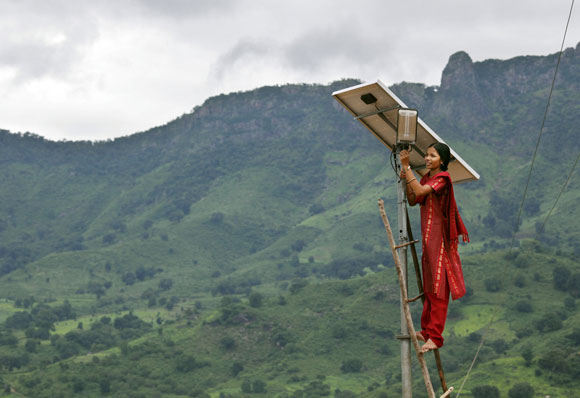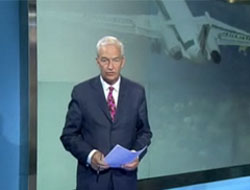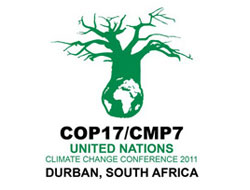This year’s United Nations Climate Change Conference (or Conference of the Parties – COP17) takes place in Durban, South Africa from 28 November to 9 December.
Every year since the UN Convention on Climate Change came into force, participant countries have met at the Conference to gather and share information and decide how to work together to adapt to the impacts of climate change.
A key focus for Durban is to get a global climate agreement, as the first commitments of the Kyoto Protocol – the environment treaty adopted in 1997 – end in 2012.
Here, journalist Jon Snow examines how the media have reported on climate change since the 2009 summit in Copenhagen, and what their role might be during and after COP17.

I knew we were in trouble when I approached the policeman's desk in the central lobby. There was a crowd of people trying to find out which committee room we were supposed to be in.
The scrum was to get into a meeting on climate change in the House of Lords. I was there to chair a panel that included former Irish President, Mary Robinson, and Dr David Nabarro, 'point man' on global food security to Secretary-General of the UN Ban Ki-moon.
Mrs Robinson has proved to be inspirational in the area of climate change. She has set up the ‘Mary Robinson Foundation – Climate Justice’ – dedicated to securing climate justice for what she calls the forgotten victims of climate change: "the poor, the disempowered and marginalized across the world".
What struck me at the panel I chaired were the enthusiasm and the youthfulness of the throng in the room. There wasn't a seat to spare – maybe 120 people sitting, and many others standing crammed around the walls, or squatting on the floor.

The subject was COP17 – the next UN Climate Change Conference to try to fix what follows the evaporating Kyoto Protocols. Beyond myself, however, there wasn't a single media person present.
There is a public out there for whom climate change is their passion. But where is their media? What has happened to the succession of coherent reporting that accepted 'climate change' as a dangerous threat to us all – and acknowledged man's role in it – in the build-up to the Copenhagen Summit on climate change two years ago?
Has the American-rooted 'climate change denial' movement had more effect than we know?
For myself, having been at Copenhagen, I remember the great optimism in the build up. I remember meeting President Mohamed Nasheed of the Maldives and listening to his passionate advocacy of tough new protocols amid the rising sea levels that threaten the very existence of his nation.
And I also remember the trauma of failure: the dank, dark cloud of despair that gripped diplomats, politicians, scientists and journalists alike as agreements fell apart and the summit appeared to end in calamitous failure.
I don't think we or the issue have recovered yet.
Inspired political and scientific leadership are needed if this cause is to be rebooted. Only then will we see a revival in media interest. The poor and disempowered to whom Mary Robinson and President Nasheed hope to give voice will not be heard without exceptional effort from within our own political and media cohorts.
In the Lords Committee Room, I think I glimpsed the beginnings of it. Watch that space.
Please note, this is a guest blog. Views expressed here do not necessarily represent the views of DFID or have the support of the British Government.
UK aid is helping millions of poor people fight and deal with climate change.
We are working to ensure that aid addresses both the causes and the likely effects of climate change, so that current and future progress in tackling poverty continues.
By 2015, we will:
- help millions of poor people protect their lives and livelihoods from the impacts of climate change
- support poor countries to develop in ways that avoid or reduce harmful emissions of greenhouse gases
- help millions of poor people secure clean energy
- give more protection to the world's forests and the 1.2 billion people who depend on them.
 We are also working with the international community to make progress towards a global deal on climate change, as discussed at the Cancun Summit in December 2010.
We are also working with the international community to make progress towards a global deal on climate change, as discussed at the Cancun Summit in December 2010.
Key issues at the Durban Conference in November include financial assistance to help developing countries deal with climate change, tackling deforestation, bringing the promises made in the Copenhagen Accord into a formal UN process, and agreeing a system to make sure countries live up to their commitments to take action on emissions.
Find out more about DFID's work in the area of the climate and environment and at international negotiations, including Durban.


Recent Comments